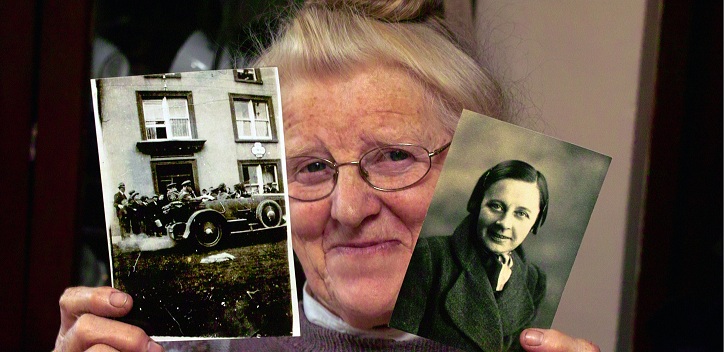2013 Press Releases
John A Murphy honours Michael Collins

Emeritus Professor John A Murphy, UCC, claims that while Collins was hardly a flawless hero, his major role in the Irish revolution, 1917-1922 has never been seriously challenged.
Unveiling a plaque commemorating the visit of Michael Collins to the Munster Arms Hotel, Bandon, just before he was fatally wounded at Béal na Blá, Emeritus Professor John A Murphy, UCC said that Collins could be vain, ruthless, impatient of criticism and increasingly autocratic. He was also conspiratorial, especially in his Northern Ireland policy, in early 1922. Yet there is no doubt that he dominated both the civil and military sides of the independence struggle, that he masterminded the smashing of British intelligence, and swung the balance in favour of the Treaty settlement.
The treatment of Collins in some writings and on film has been unhistorical and distorted. The demonization of Eamon de Valera as part of the Collins glorification process is unnecessary, unfair and irrelevant. Moreover, Collins has sometimes been wrenched from his proper historical context and forced into contemporary relevance. Thus, he is depicted as a very modern ‘macho’ man, cast in a late twentieth-century mould, especially in the area of sexual permissiveness. However, his alleged womanising remains mere speculation and there is no evidence that he succumbed to the blandishments of his groupies. He was exclusively devoted to his fiancée Kitty Kiernan. He was a practising Catholic after the manner of his day, even if occasionally anti-clerical in the Fenian tradition. He probably died a virgin, bizarre as that may sound to latterday sophisticates.
Similarly, attempts to paint him as an original socio-economic radical have no foundation in his Path to Freedom essays which simply reflect the orthodox nationalistic thinking of the Sinn Féin that shaped him. It is interesting that the ‘modernisers’ ignore a dominant feature of Michael Collins’s philosophy that does not suit their case, namely, his enthusiastic commitment not only to the Irish language but to ‘the revival of our Gaelic civilisation.’
Speakers at Béal na Blá every August tell us that, if Collins had lived, he would have identified with this or that cause or movement. This is only speculation, of course, but invoking his posthumous approval after nearly a century testifies to his impressive and ever-widening standing in Irish political tradition.
Transcending his original position as a jealously-guarded family icon and as the imagined father figure of Fine Gael, he is universally attractive to public opinion. He has long since won over former political opponents. First and foremost, however, he will always remain the popular hero of West Cork.
